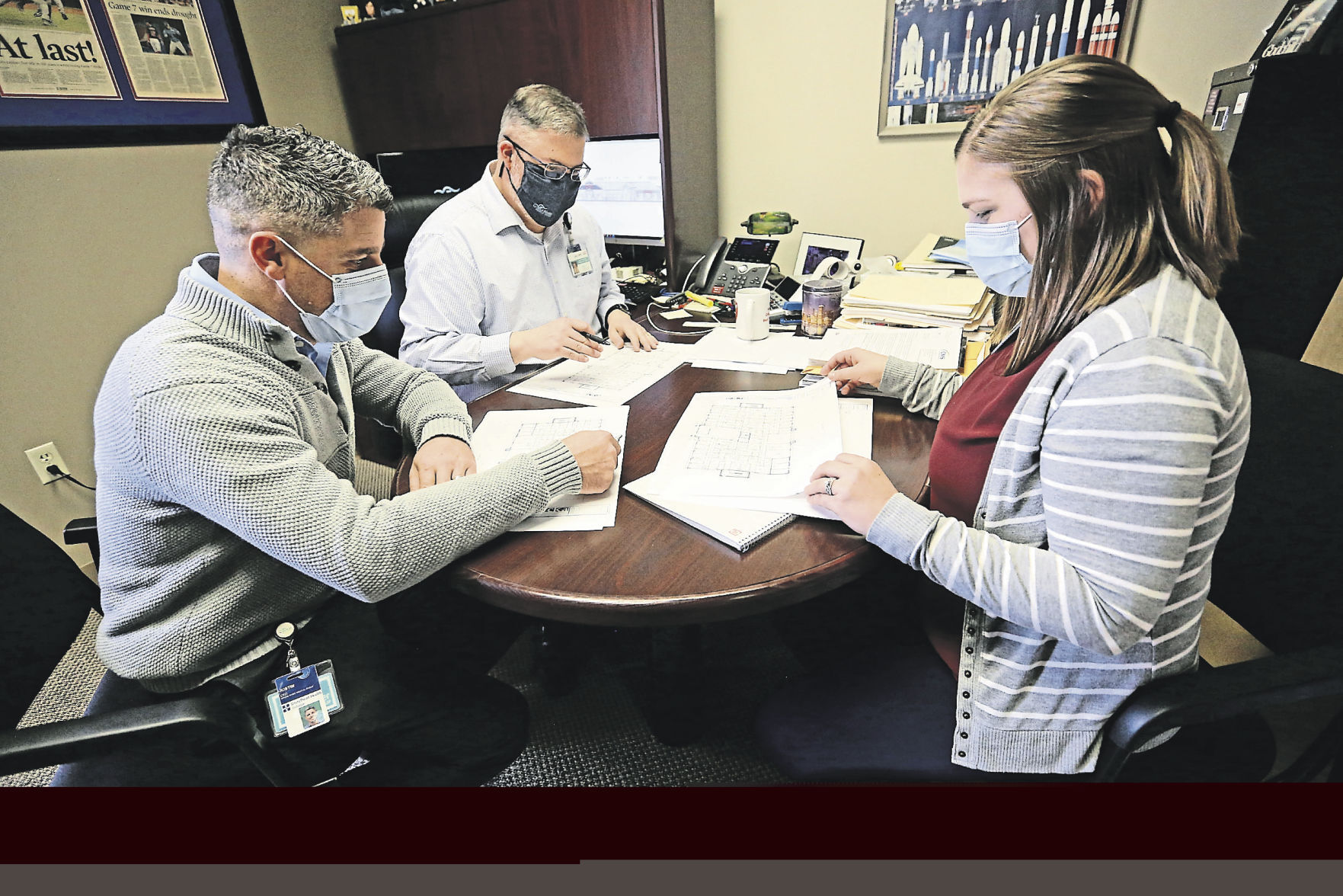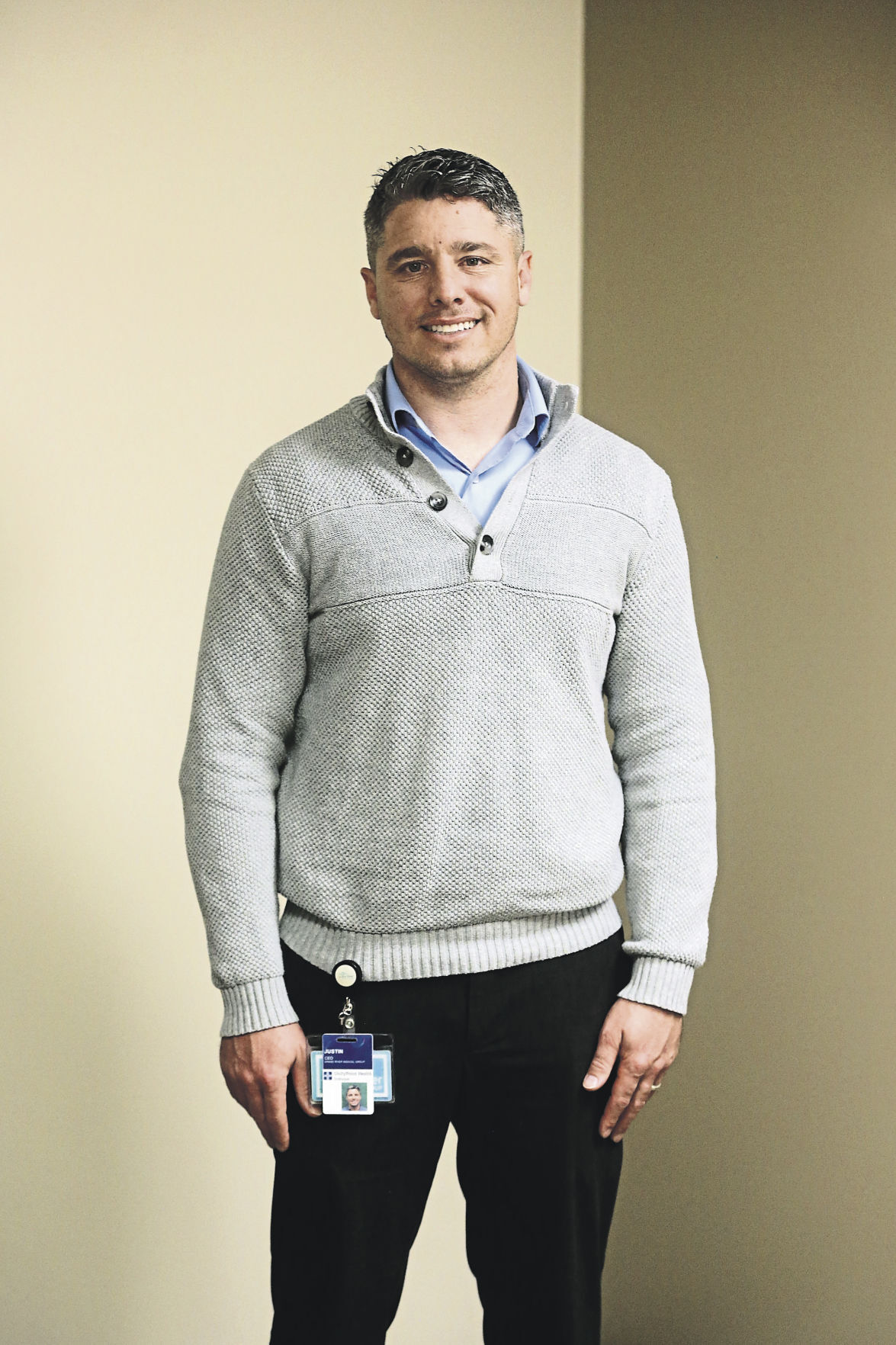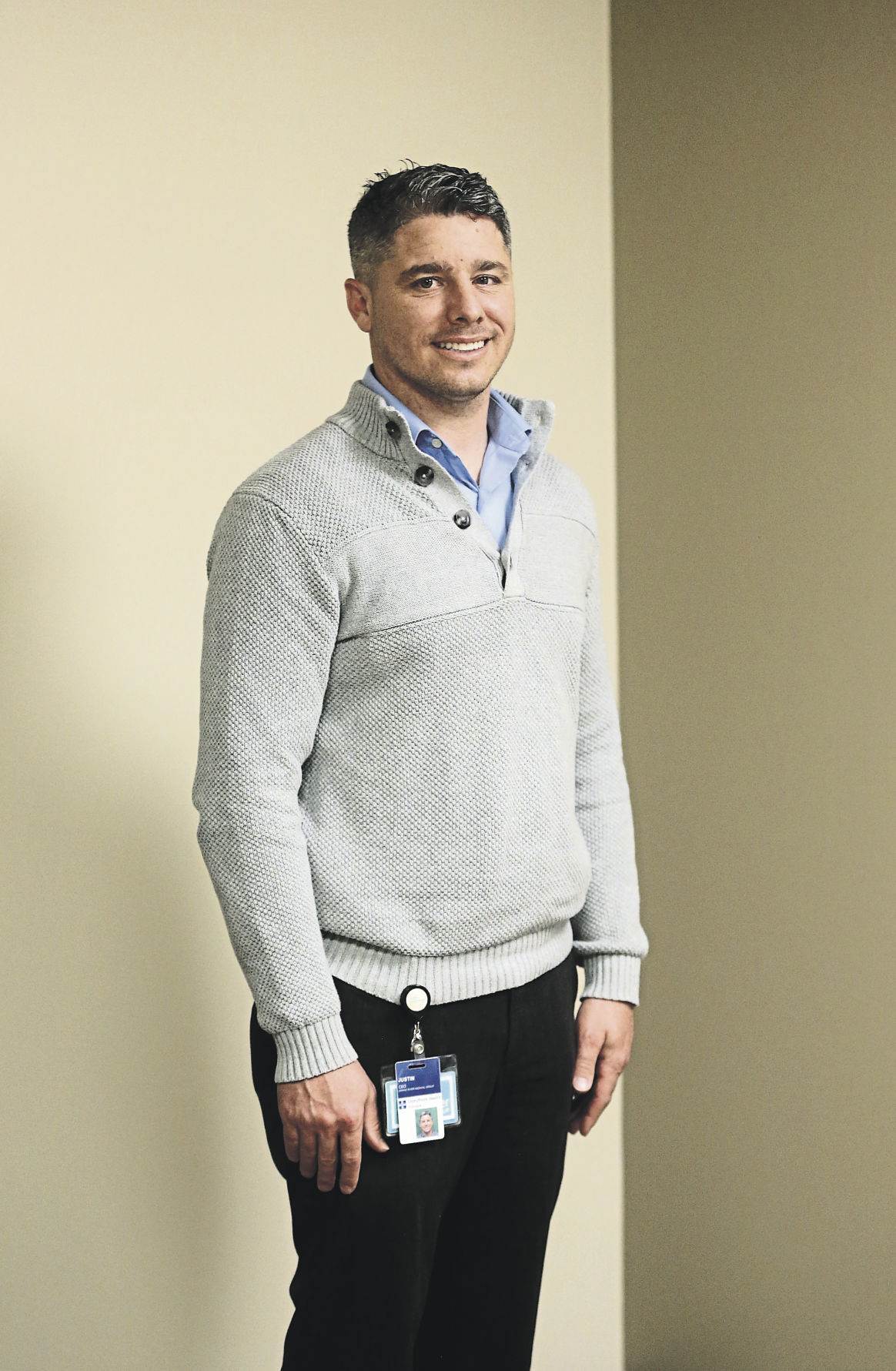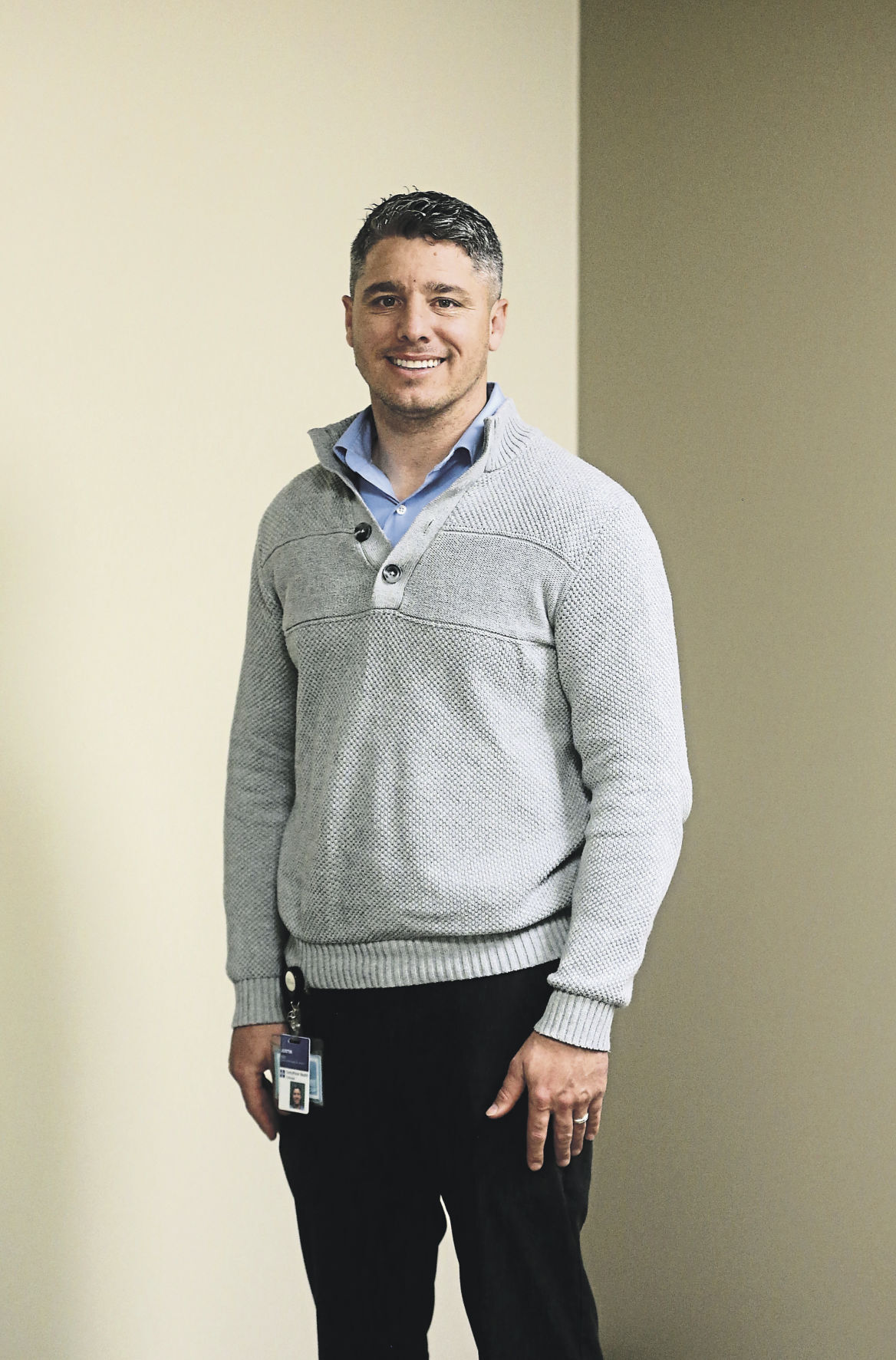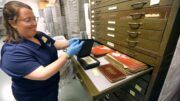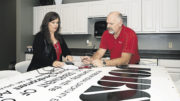Justin Hafner, CEO at Grand River Medical Group
Justin Hafner serves as the CEO for Grand River Medical Group in Dubuque. Outside of work, he is an Officer Candidate Instructor for the National Guard and enjoys mentoring the leaders. He has been in the Army for 20 years.
His wife, Andrea, works at MercyOne Dubuque Medical Center and Northeast Iowa Community College.
The family includes three children, all named after U.S. presidents — Lincoln, Benjamin and McKinley — and two large German shepherds.
The family rule for naming future children is they can’t be named after a Biden, Trump, Obama, Clinton or Bush. It’s just too soon.
Can you name a person who has had a tremendous impact on you as a leader?
I can, but I don’t want to be insulting. The people that have had the biggest impacts on me as a leader have all been the worst bosses that I’ve had. They taught me valuable lessons — specifically, how not to lead, act and treat other people.
What are the most important decisions you make as a leader of your organization? Hiring and firing. If you do a good job hiring (and coaching those you bring on) — you don’t need to fire.
As an organization gets larger, there can be a tendency for the “institution” to dampen the “inspiration.” How do you keep this from happening? In order to keep a family feel, your smaller offices/clinics need to have autonomy to make some decisions at the local level. You cannot be a leader who micromanages decisions.
Which is more important to your organization — mission, core values or vision? A mission statement. The mission statement answers the ‘why’ for what we do and why we do it.
What is one characteristic that you believe every leader should possess? Integrity or “the quality of being honest and having strong moral principles; moral uprightness.”
What advice to you have for future leaders? The surest way to succeed is to try just one more time. If you fail, pick yourself up and try again. Good things do not come easy and success is not found through instant gratification. Often success is found after traveling many dark and turbulent roads.
What lessons can leaders take away from the current pandemic? The biggest lesson is how to manage during a crisis or crisis management. The last year was tough on many leaders (whether business, public education, political, etc.). They heard the impassioned pleas from many of their constituents arguing the opposite ends of the spectrum.
I have two key tenets for leading during a crisis:
Be a bridge builder and not a bridge destroyer. You need to strike compromises that bring opposing viewpoints together.You cannot run around with your hair on fire. You must display confidence and stability. You must absorb the stress you feel and not project it on your staff.
What are two or three of the best things about being a leader? The best things about being a leader include mentoring junior leaders through teaching/setting a good example and seeing your vision on things become reality.


